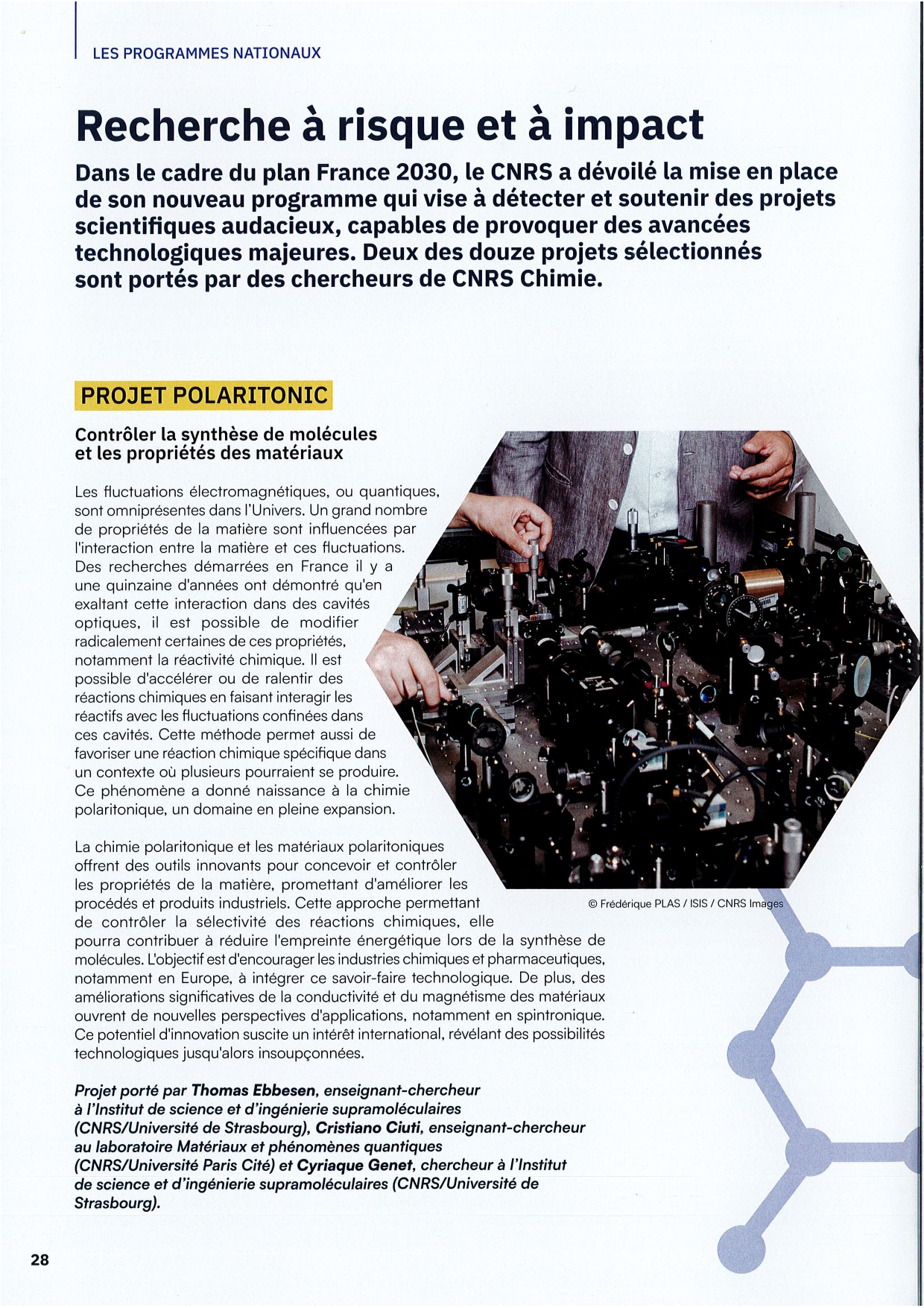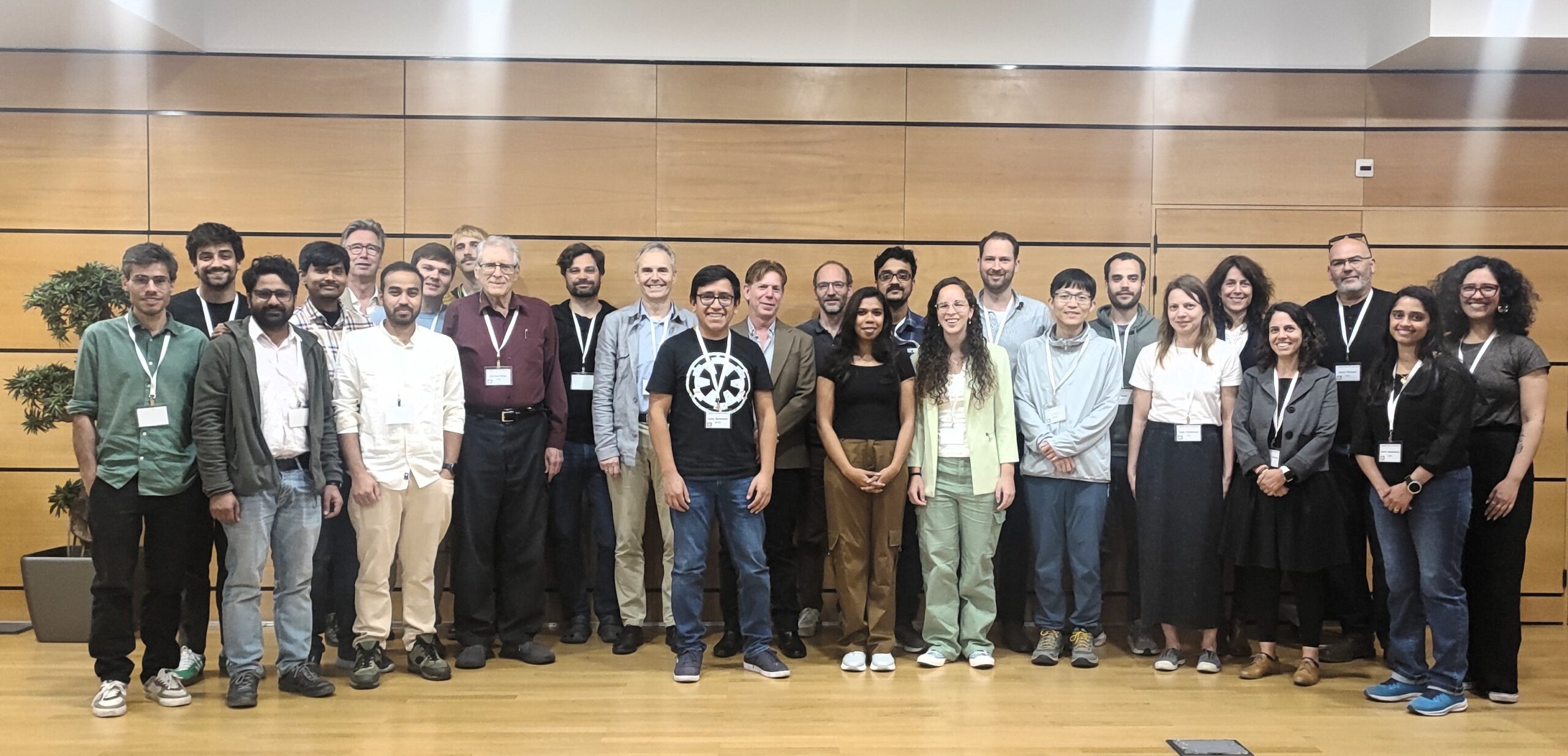Thomas Ebbesen and Cyriaque Genet are the laureates of a prestigious ERC Synergy grant with three other teams at the University of Tel Aviv, the University of Pennsylvania and the Max Planck Institute in Hamburg. The project is focused on polaritonic chemistry, a field that was imagined and developed in the lab during the past 15 years. In polaritonic chemistry, the interaction between molecules and electromagnetic fluctuations are enhanced in optical cavities, in the dark, which can radically modify the properties of matter such as chemical reactivity. Together, the four teams aim to understand during the next 6 years the underlying chemical physics in order to make polaritonic chemistry a predictive tool for the molecular sciences. This new approach to control the properties of matter has generated considerable interest around the world as it raises not only fundamental questions but it also opens up unsuspected technological potential.
 Illustration of light-molecule coupling in an optical cavity – Source : Chemical Reviews
Illustration of light-molecule coupling in an optical cavity – Source : Chemical Reviews




